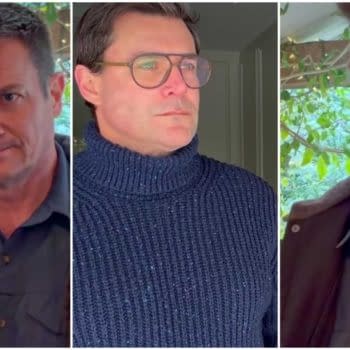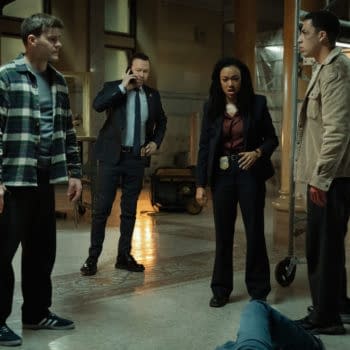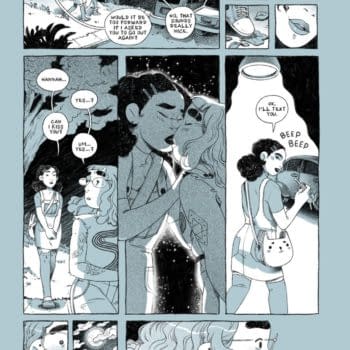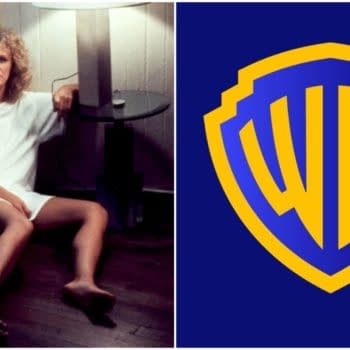Posted in: Comics, HBO, Movies, Superman, TV, Warner Bros | Tagged: superman
Superman: Shuster Estate's Lawsuit Against WBD, DC Comics Dismissed
A federal judge has dismissed a lawsuit rom Joe Shuster's estate against Warner Bros. Discovery's Superman over foreign rights issues.
Back in January of this year, the estate of Superman co-creator Joseph Shuster filed a lawsuit against Warner Bros. Discovery (WBD) and DC Comics, claiming the multimedia company didn't have the legal right to release writer/director James Gunn's David Corenswet, Rachel Brosnahan, and Nicholas Hoult-starring Superman feature film in Canada, the United Kingdom, Ireland, and Australia. Filed by Shuster Estate Executor Mark Warren Peary in the Southern District of New York, the lawsuit sought "damages and injunctive relief for Defendants' ongoing infringement" in the key territories listed above. In addition, the lawsuit sought a "declaratory relief establishing the Shuster Estate's ownership rights across relevant jurisdictions" (more background on the lawsuit below).
On Thursday, U.S. District Judge Jesse Furman dismissed the lawsuit, allowing the feature film to continue with its global release plan this summer. Judge Furman determined that the court did not have an official legal say over the cast since the estate's copyright infringement claims were brought before the laws of foreign countries. The Shuster estate's "infringement claims are brought explicitly under the laws of foreign countries, not the laws of the United States," Judge Furman wrote in his decision. Earlier today, the lawsuit was refiled in New York state court. WBD released the following statement after the decision to dismiss the lawsuit was released: "As we have consistently maintained, DC controls all rights to Superman" (you can check out Judge Furman's decision here).
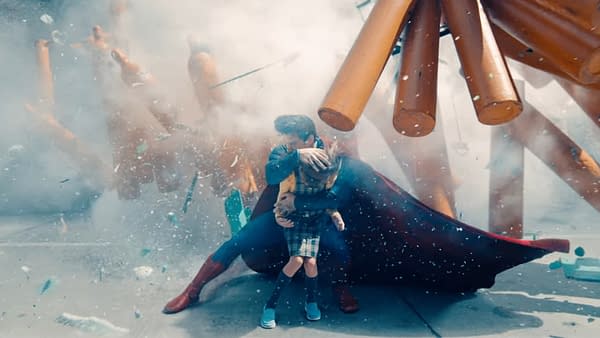
Superman Lawsuit: Shuster Estate Sues WBD, DC Over Foreign Rights
What Was The Issue? It came down to foreign copyrights to the original character. In 1938, Superman co-creators Shuster and Jerome Siegel signed the global rights to Superman to Detective Comics, Inc. (DC Comics' predecessor) – but the matter of copyright laws and how they function in other countries was brought into the spotlight. The lawsuit claimed that "the copyright laws of countries with the British legal tradition—including Canada, the United Kingdom, Ireland, and Australia—contain provisions automatically terminating such assignments 25 years after an author's death, vesting in the Shuster Estate the co-author's undivided copyright interest in such countries."
In other words, according to the argument being made, Shuster's passing in 1992 should have started the clock on that 25-year time limit regarding rights in those territories. "By operation of law, Shuster's foreign copyrights automatically reverted to his estate in 2017 in most of these territories (and in 2021 in Canada)," the lawsuit continued. "Yet Defendants continue to exploit Superman across these jurisdictions without the Shuster Estate's authorization—including in motion pictures, television series, and merchandise—in direct contravention of these countries' copyright laws, which require the consent of all joint copyright owners to do so."
One of the main arguments made in the lawsuit was that the claims fall under the Berne Convention, an international treaty put into place in 1886 that established minimum standards for copyright protection. In the case of Superman, the Shuster estate argued that the court needed to apply the laws established in those countries where the estate's rights are being impacted. Judge Furman ruled that the treaty wasn't "self-executing," meaning the laws of other countries (regarding copyright infringement) aren't automatically enforced by the U.S. courts.




